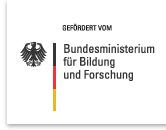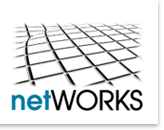The future orientation of water infrastructure systems in Germany is on trial: in expanding metropolitan regions the systems are already approaching the limits of their capacity and in shrinking rural areas are often underutilized.
The present systems are not flexible enough to adjust to changing conditions amongst which are not only demographic developments but also climate change or necessary enhancements of resource efficiency. Within the context of the research project netWORKS 3 it was investigated how necessary transformations of water infrastructures could come about. The results have now been published.
Urban water management is facing a number of complex tasks. On the one hand it has to secure the supply of high-quality drinking water, on the other hand it has to adjust to regional demographic changes in a flexible way, it also has to guarantee an adequate wastewater treatment and has to lower the currently high demand for energy. Reasons for the urgency to change are not least the results of climate change: torrential rain, floods and dry periods are all calling for a transformation of systems that were developed in the 19th century. With a view to these complex demands, new technical system solutions have emerged. They are characterized by high flexibility and are aiming towards the closure of energy and material cycles.
"The novel water infrastructures are suitable for a wide variety of areas of application in urban sub-regions", says Martina Winker from ISOE – Institute for Social-Ecological Research and project manager of netWORKS 3. “They are capable of complementing existing systems in a meaningful way also because they include the reuse of wastewater or the utilization of nutrients in water.” The research project with model neighborhoods in Frankfurt am Main and Hamburg was able to show that suitable transformations are feasible for various requirements. The precondition is an efficient cooperation between companies and urban water management and urban development resp. regional planning. “For a successful application of novel, little-known water infrastructure solutions it is imperative that all actors concerned – the urban planner as well as the plumber – are integrated into the process” Martina Winker is pointing out.
Shaping the change: leeways for sustainable transformation
All the results drawn from the three-year research project can be found in the publication “Water infrastructure: shaping the change”. The study introduces variants, potentials and leeways for a sustainable transformation. “Our study shows how the high quality of municipal services in the realm of water infrastructure can continue to be guaranteed for the future”, says Jens Libbe from the German Institute of Urban Affairs (Difu) that significantly contributed to the research work. “The current framework conditions do not only show prevailing weak points of the existing system but also offer a strategical chance to re-think water infrastructures and the ways we handle water”, says Libbe.
By means of examples, the study illustrates what is important for a successful transformation: technical system alternatives, experiences from pilot municipalities like Frankfurt am Main and Hamburg but also legal regulations and novel corporate strategies. The publication is dealing with questions concerning the choice of systems, the management for the introduction of novel systems and the acceptance among the users. But the authors also mention still existing needs for research and action for example when it comes to financing or the necessary knowledge transfer of scientific and technical bases in education and training.
Wasserinfrastruktur: Den Wandel gestalten. Technische Varianten, räumliche Potenziale, institutionelle Spielräume (Water Infrastructure: shaping the change. Technical variants, spatial potentials, institutional scopes). Winker, Martina; Trapp, Jan Hendrik together with Libbe, Jens; Schramm, Engelbert (ed.) printed publication as part of the series Edition Difu – Town Research Practice, Volume No. 16. ISBN: 978-3-88118-584-4; ISSN: 1863-7949. English summary available.
For more information see www.difu.de/11299 or contact vertrieb(at)difu.de
The research association netWORKS 3 has also published guidelines for decision-makers to be found as downloads on the research association’s homepage. www.networks-group.de
netWORKS 3 was funded within the funding measure "Intelligent and multifunctional infrastructure systems for sustainable water and waste water systems (INIS)" as part of the program “Research for sustainable developments (FONA)” of the German Federal Ministry for Education and Research (BMBF). Research and project partners were ISOE – Institute for Social-Ecological Research, the German Institute of Urban Affairs (Difu), Workgroup for Infrastructure Policy (WIP), TU Berlin/Germany and COOPERATIVE – Infrastruktur und Umwelt, Reinheim/Germany. Industry partners were ABG Frankfurt Holding and ABGnova GmbH as well as Hamburger Stadtentwässerung AöR (a company of Hamburg Water).


